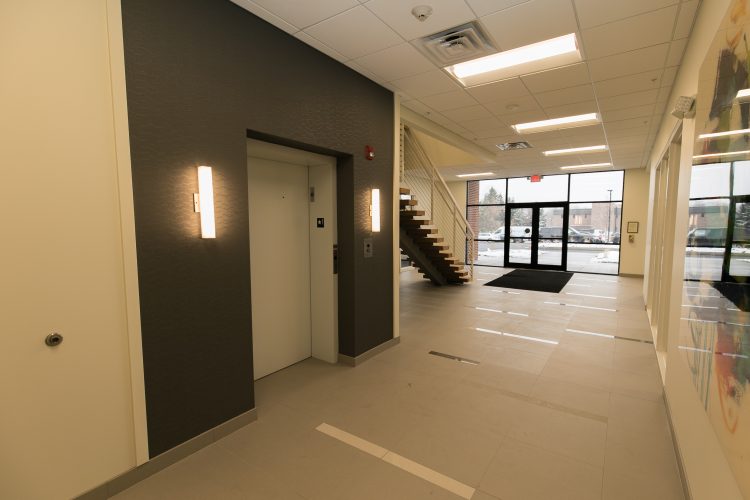Linoleum Flooring Pros and Cons

When deciding on the build-out of your new facility, selecting the best flooring option for specific spaces can be difficult. In this article we’ll share linoleum flooring pros and cons to help you determine if linoleum is a good option for your layout.
Linoleum flooring is often confused with vinyl flooring. However, the materials are very different and as a result offer unique pros and cons. See if these pros outweigh the cons for your situation.
1. Quality
Pros: Flexible and Soft
Linoleum is manufactured from natural materials that make it flexible, bounceable, and incredibly durable. It can last up to 40 years if properly maintained. It’s also very soft and comfortable underfoot.
Cons: Susceptible to Scratches
Because of its softness, linoleum can be scratched or torn by dragged furniture or sharp objects such as pointed heels. Also, the flooring’s natural materials make it susceptible to moisture damage, and excessive humidity can cause corners to curl.
2. Appearance
Pros: Colors, Patterns, and Installation Options
Unlike vinyl and laminate flooring, linoleum dye is infused through the flooring so it’s better at holding color and pattern. Next, linoleum is very versatile with a wide variety of colors and patterns available. Lastly, linoleum is very easy to cut to exact specifications, so you can create unique mosaics with tile linoleum.
Cons: Vulnerable in Light
When exposed to light, linoleum will take on a subtle yellowish hue.
3. Maintenance
Pros: Sealed = Low Maintenance
Linoleum is easy to install and has minimal maintenance requirements. It can last its full expectancy with frequent sweeping and occasional mopping.
Cons: Unsealed = Higher Maintenance
If you select unsealed linoleum, it may need regular polishing and buffing. And if not maintained properly, linoleum can show its age by yellowing.
4. Green
Pros: Renewable, Biodegradable, and Clean
Linoleum is an environmentally friendly flooring option. Linoleum utilizes a renewable resource thanks to its linseed oil from flax composition. Linoleum is also biodegradable, non-toxic, and formaldehyde-free and will decompose when disposed, unlike vinyl flooring. Lastly, it doesn’t emit volatile organic compounds (VOCs) so it won’t cause indoor air pollution.
Cons: Installation Odor
Upon installation, linoleum flooring gives off linseed fumes for about a week to a month. These odors won’t cause any harm, but they may frustrate some people.
We hope this article helps you to determine if linoleum flooring is right for your project. Visit our linoleum flooring page for more information and to view our project installations.
Related Posts

